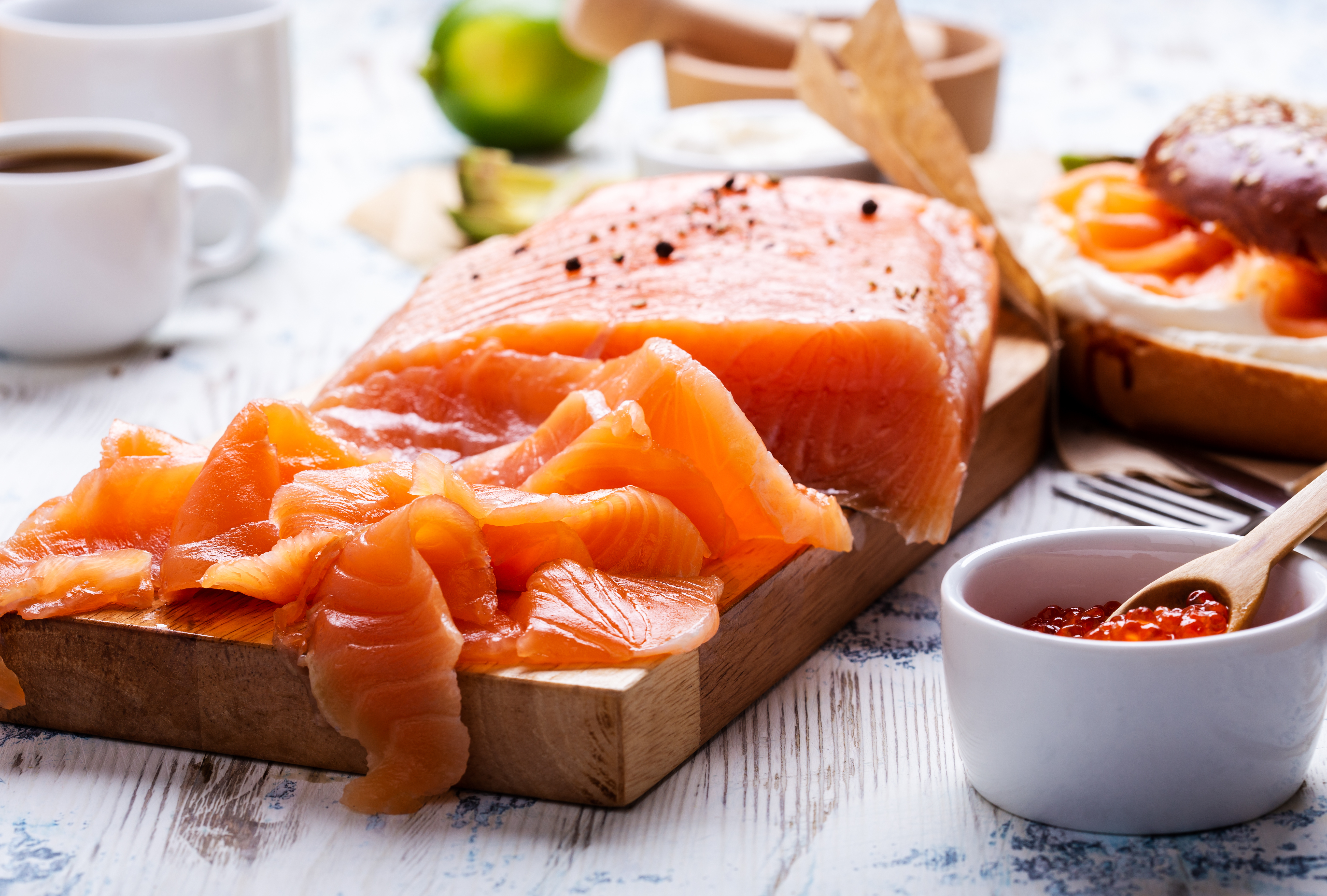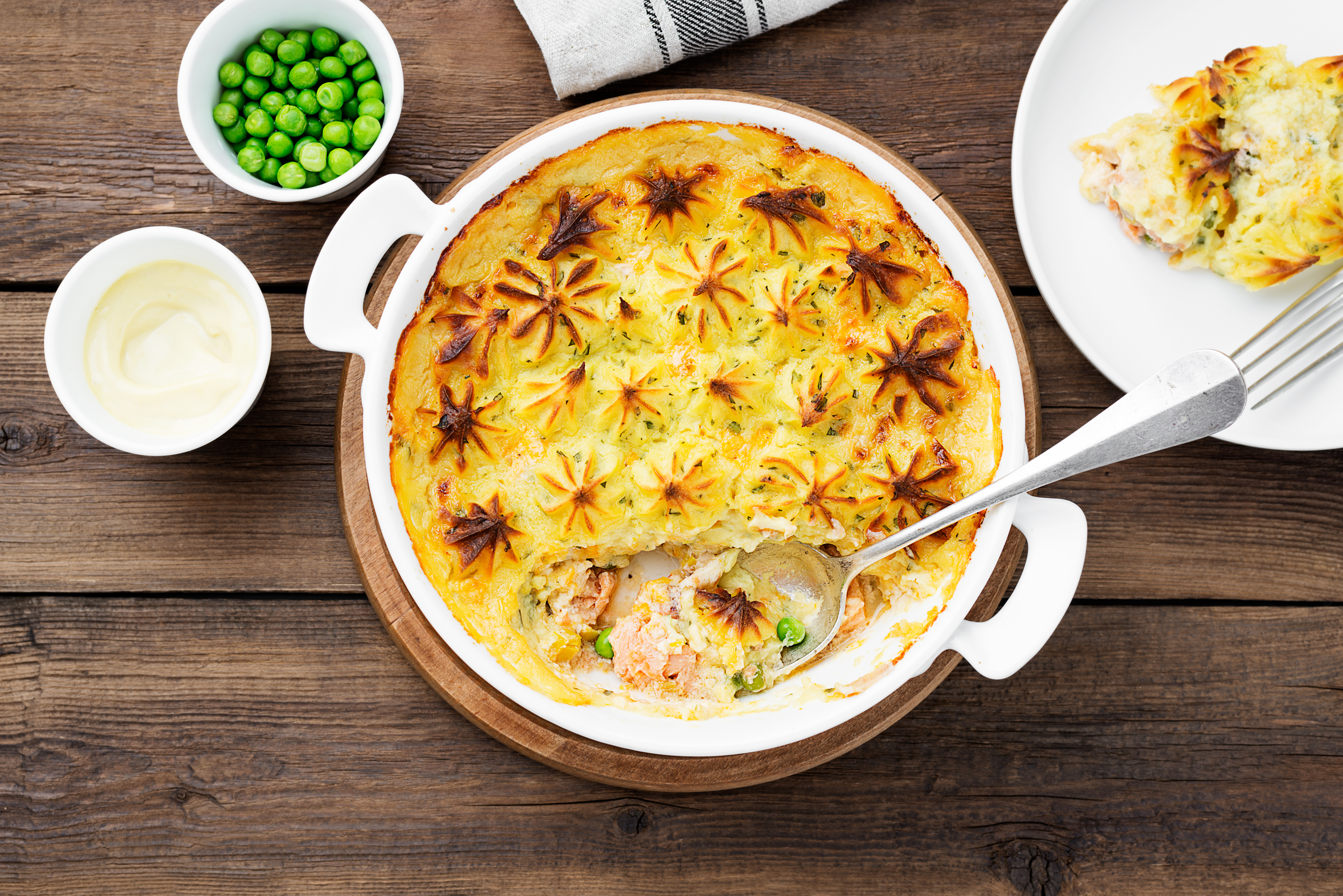Free digital copy
Get Speciality Food magazine delivered to your inbox FREE
Get your free copy
The fish market continues to net in eager visitors to farm shops, delicatessens and speciality food outlets.
However, there is a catch. Recent factors such as rising fish prices, fuel cost increases and Covid-19 have posed notable challenges for the industry.
Taking Covid-19 first, at the start of the pandemic, the Guardian reported that British fish had been “severely” affected by a decrease in demand from export markets.
But despite the challenges posed by the pandemic, some sellers have found that there has been an upside. Jack Glendinning, owner of Mere Trout Farm says that there has been a long-term benefit of Covid, with many customers trying the company for the first time while it offered a home delivery service. “Most of these customers had got a taste for our trout and have stuck with us but bought monthly rather than weekly when the home delivery service was no longer viable.”
Pre-Covid, the fish market was all about sustainability. But going through Covid, it was all about supporting local fishermen and industries in the UK. “But now, it’s swung again,” says Jack Wing of The Cornish Fishmonger. “I think people are less interested in where it comes from, and more in the price point.”
The other recent news issue has been Brexit. Jack Glendinning says that while Brexit has only had a minor impact on Mere Trout’s business as it does not export, it has impacted in other ways. “The lead times for buying replacement machinery parts have become very unpredictable, and we had problems recruiting staff, but both have improved over the last year.”
Jack Wing adds that because the government are doing a staggered Brexit, this will affect the quotas and the fishing grounds over the next five to 10 years, meaning that it hasn’t had such an immediate impact.
“It has, however, made importing of farmed fish a bit harder. We import our farm fish via an importer through London, and they would usually be able to just pull over whatever they wanted every day. They’d then put it on a lorry, and a pallet would go through. But now, because there’s so much paperwork and because it’s so expensive, they’re only doing it for four lorries. You only get one order a week, and if you don’t get it right, you don’t get it right.”
“As a business, I personally don’t export to Europe, so it hasn’t affected me. Plus, the majority of our fish is local, so while it has affected salmon prices a little bit, and getting hold of some of the stuff from the continent, in general, so far, Brexit hasn’t had a major impact. I can see it being an issue in the future however – maybe positive and negative, because a lot of the quotas are coming back into fishing boats. That will improve the amount of fish getting landed, but the majority of our fish goes abroad anyway.”
“If it’s supply and demand, if you’ve got the supply, you also need the demand. You need the customer. I can see it being a case of six of one and half a dozen of the other. More fish will help us, but it’s harder to sell it to the market.”

In terms of popularity, some businesses concentrate on either one or a select few kinds of fish. Berkshire Trout, for instance, is an artisan food producer of fresh and smoked trout products. Co-founder Lucy Handley expands more on the business set-up: “We – my husband Jon and I – run Berkshire Trout Farm which is a highly sustainable restocking farm which has been operating since 1907. We restock rivers and fisheries across the South of England. This is 90% of our business. We keep very low stocked ponds as we are growing the trout in an as natural environment as possible to one that they will be released into.”
The food side of Berkshire Trout was set up 18 months ago, featuring Rainbow Trout products. “We have a small range of trout products - fresh fillets, cold and hot smoked trout, a pâté and a trout gravadlax and a gin & beetroot cured trout.”
Another seller of rainbow trout, Mere Trout, grows this fish from eggs hatched on the farm. “We sell fresh trout and the smoked trout that we produce in our smokery on the farm, offering both hot smoked and cold trout as well as smoked trout terrines,” says Jack.
The vast majority of Mere’s produce is sold locally in the south west. “Many of the farm shops and chefs we supply have visited the farm to get a feel of what we do.”
A more traditional take on fish is provided by White Row Farm Shop.
Good old fish and chips have been pulling in the customers, which are available to either eat on site at the shop or take away. The battered fish is served with home grown chips, as well as other extras such as salads or lemon. Vegan and gluten-free options are also available.
In addition to the fish and chips, White Row caters for fish fans with a choice of fresh fish, shellfish, smoked fish as well as fish-related goodies such as home-made taramasalata and fish cakes; seafood salads and platters; and fish chowders, soups and pies.
Fish-related products are proving to be popular sellers – although some have taken on a DIY element for customers.
While fish pies such as Chapmans Luxury Fish Pie (sold at Gates Farm Shop and including no less than four kinds of fish – smoked haddock, prawns, salmon and white fish) continue to hold their own, pie mixes are also offering appeal to customers. Greendale Farm Shop sells a Premium Fish Pie Mix that features hand-diced fresh white fish, fresh monkfish and salmon, smoked fish and raw peeled prawns. Jurassic Coast Farm Shop also provides the required ingredients in one handy package, with a selection of sustainably caught salmon, white fish and smoked haddock.
Considering the subject of customer demand, Jack Wing says that this is dependent on how you want to categorise the most popular.
“If you’re looking at volume, you’re probably talking something like oysters, because we sell the highest number of those,” says Jack. “If you’re talking about value, we’re talking smoked salmon… lobsters… we sell a lot of those in high value. Probably the most common is salmon as it’s a known entity, it’s known for its health benefits, high in Omega-3 oils and is a very recognisable fish. It’s a nice, safe, traditional option.
Surrounded by the sea, The Cornish Fishmonger is a keen champion of local fish.
But as Jack explains, sometimes, local isn’t always the best option. “Cod is a good example. Today, there’s not much around and there’s really no quotas for any of the boats. So we source our cod from MSE Fisheries – some local stuff, also Scotland. All your fish and chip stuff, and haddock – that’s coming from Iceland and Norway. It’s MSE accredited, definitely the best fisheries in the world for white fish. So you make a decision to source the best, and sometimes local isn’t always the best.”
“Also, we see so much fish around. Cod eat baby flat fish, baby plaice, stuff like that. And because that stock has dropped, the other species have thrived. So obviously, you need a healthy ecosystem for every layer in the food chain. Other species are performing well. But I would definitely say 99% of our people want to go through locally sourced. In the current market, with problems like the cost of living crisis, it’s far more of a price battle now.”
For Berkshire Trout, the subject of local produce is a different kettle of fish. “We have seen an increase in people looking to source fish more locally and away from intensively farmed supermarket fish from places such as Scotland or Norway,” says Lucy. “We think trout is becoming more popular but we have not undertaken any research. However, we run a number of market stalls at weekend such as Marlow, Henley, Hungerford and we do get some good qualitative feedback.”

Unnecessary wastage remains a big problem in the industry, but fortunately, businesses are using waste products as ingredients. Greendale Farm Shop, for example, uses filleting offcuts in its fish pies, fish pie mixes, fish cakes and also bisque and fish stock (which features empty crab and lobster shells for extra flavour).
The Cornish Fishmonger offers different frozen ranges of fish, including tempura, battered and breaded, as well as making a range of fish sauces, such as fish stock, crab stock, Thermidor sauce and fish pie sauce.
“This not only limits waste, but also gets as much value as possible for customers, which is especially important in the current cost-of-living crisis,” says Jack Wing. “A lot of that is customer driven and a lot of that is also us trying to fill a hole in the market. I think Cornish fish and fish-related products are really important, and a lot of what’s on the market is ambient and very acidic to give it a shelf life, so we thought we’d have a crack at it. We have the perfect facilities, we’re right at the source.”
All of The Cornish Fishmonger’s suppliers are on board properly with health and safety. “We manage allergens properly because you’ve got shellfish, crustaceans…so we try and limit the allergens through,” adds Jack Wing. “The management of allergens is the biggest issue because they can be quite serious. It’s important to ensure that our suppliers adhere to the same high levels of health and safety.”
“Internally, bones – it’s a standard problem. Although every effort is made to get rid of bones, sometimes one may slip through. We pick our own crab meat here, and that gets double sifted and triple sifted for bits of bone and cartilage. Sometimes, minute bits can sift through, but again that’s standard in the industry. We do everything we can to remove all bones from fish and fish-related products.”
“When we produce our trout products our focus is on a number of areas, such as the quality of the water,” says Lucy. “We are fed by a chalk stream and we regularly monitor the quality in and out of the farm. We are monitored by the Environment Agency also on a regular basis.”
“With freshness of the fish, most often this is processed on the same day. Pin boning and removing bones is a high priority for us. We operate at a very high hygiene level and have a 5 star rating.”
Jack Glendinning concludes, “Being able to provide high-quality fresh produce week in and week out will always be king, but provenance and a low environmental footprint are also very important to our customers.”